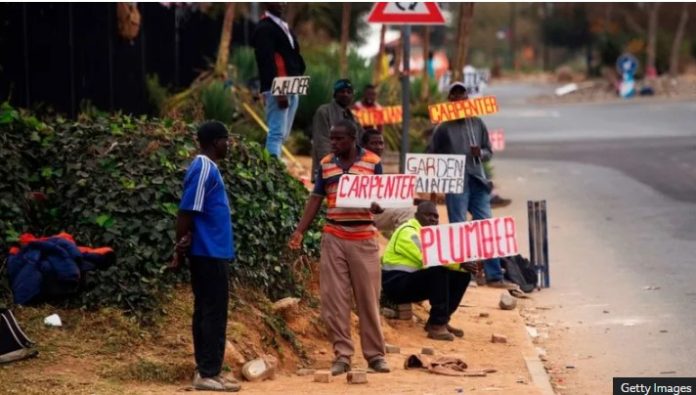South Africa is facing a crisis of unprecedented scale. With unemployment surging past 33%, the situation has been described as a “national catastrophe” by Collen Malatji, leader of the African National Congress Youth League (ANCYL). Speaking at a conference in the Western Cape as part of the ANC’s 113th anniversary celebrations, Malatji painted a grim picture of a nation grappling with economic stagnation and lost opportunities for its youth.
“Unemployment in South Africa is worse than COVID, HIV, and tuberculosis combined,” Malatji declared, highlighting the dire reality of joblessness that has left millions struggling. Despite the country’s vast natural resources, its inability to provide economic security for its people has deepened societal challenges.
Malatji criticized South Africa’s dependency on imports, stating that the erosion of the manufacturing sector has contributed to endemic youth unemployment. He called for a revival of industrial production, which he described as a cornerstone for creating sustainable jobs and economic growth.
Malatji also took aim at South Africa’s banking sector, accusing it of monopolizing financial activities to the detriment of broader economic participation. He reiterated calls for the nationalization of the South African Reserve Bank and emphasized the need to restructure the economy to prioritize young people, who represent both the workforce and the future of the nation.
This year’s ANC anniversary marks the first time since the Democratic Alliance (DA) took control of Cape Town in 2009 that the ruling party has celebrated its founding in the city. The backdrop of the event underscores the political and economic challenges facing the ANC in its efforts to address the unemployment crisis.
According to Statistics South Africa (Stats SA), the country’s official unemployment rate reached 33.5% in the fourth quarter of 2024. Over a 12-month period from June 2023 to June 2024, South Africa lost 144,000 jobs across various sectors. These losses have further strained households, leaving many without a stable income.
Economic expert Imraan Valodia has warned that addressing South Africa’s unemployment crisis requires a complete rethinking of policy. He argued that simply deregulating the labor market is not a viable solution. “The challenge of unemployment demands new strategies, focusing on employment-centered growth,” Valodia said, urging a shift towards inclusive and transformative economic policies.
South Africa’s unemployment crisis is more than just a statistic—it is a reflection of a broader economic and social breakdown. As the nation grapples with this challenge, the need for bold reforms and renewed focus on industrial growth has never been clearer. Without immediate action, the country risks deepening inequality and leaving an entire generation without hope.





